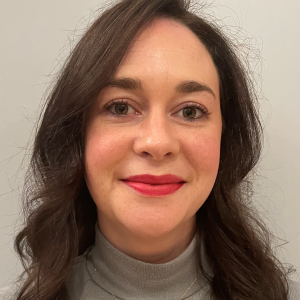What is the role of law and policy in promoting the rights of people with disabilities in Ireland?
A blog about a Policy and Legislation Workshop – from Year 2 of the BA in Contemporary Disability Studies:

Law and Policy in a Changing Society
As a health and social care professional, staying up-to-date with the rapidly changing world of disability law and policy in Ireland can be challenging. Ireland has emerged, possibly a little stunned and blinking from the influence of mediaeval law and is setting the course for more modern and progressive policy promoting the realisation of human rights for people with disabilities. It is important to have a working knowledge of the legislation and systems in place in order to effectively support the realisation of human rights for people with disabilities. The workshop focuses on the policy and systems surrounding areas of safeguarding adults and children, education, employment, decision-making, and regulation of services.
Student Expectations and Feedback
Students are asked to discuss their expectations of the course at the start of the day. Many feel that Law and Policy is an area that they do not have a lot of confidence in. The workshop aims to link content to the day to day work and lived experience of students in order for them to learn from each other and develop confidence about how it can be applied. Towards the end of the day students are asked for feedback on the workshop and how it might impact on their day to day work supporting people with disabilities. Some comments made include:
- Knowledge of Policy and Legislation will help me to advocate for the people I work with.
- Learning about the Assisted Decision-Making Capacity Acts will help me to support people I work with in their transition from the Ward of Court System.
- This workshop was very helpful for increasing my knowledge of the policy and legislation important to my work and informing me about where I could find more information.
- I feel more reassured and confident about disability law and policy after this workshop
Seeing Equality and Discrimination
The workshop encourages group discussions exploring concepts of equality and discrimination. Is equality, treating all people the same way? How does law and policy work to expand beyond this more formal definition of equality? The students explore what the equality impact of policies and systems are in the lives of the people they work with. A case study on reduced timetables in education prompted a discussion about the importance of new guidance indicating that parents must be consulted before a reduced timetable is implemented. Students also gave examples of reasonable accommodations they have experience of both in the workplace and in their personal lives. Flexible working times, a named mentor or support within the workplace and physical adjustments to the environment were some excellent examples given.

Equal in the Eyes of the Law
One of the most fascinating areas discussed during the workshop is the Assisted Decision-Making Capacity Act 2015, as amended in 2022. This act brings Irish legislation closer to the UN Convention on Rights of Persons with Disabilities, which states that all people with disabilities have the right to equal recognition before the law. It has replaced outdated mediaeval laws, the Marriage of Lunatics Act 1811 and the Lunacy Regulation (Ireland) Act 1871. The workshop explores how the Assisted Decision Making Act will affect practice for health and social care professionals and the people they support through the principles of the Act and the stages of co-decision making support.
As expected, the subject of decision-making support brings up many complex questions. What is the difference between respecting an adult's decision and failing to safeguard them? Students used their own local policies and practice in service in addition to information provided by the workshop to tease this out. The general consensus being that there is no one size fits all, complex issues require lots of collaboration and often it is wise to seek support such as an independent advocate.
Now We See It
Ireland has shifted from a society that seldom interferes in domestic life to one that aims to actively safeguard children and support families with a high level of mandated responsibility for health and social care professionals. Students are presented with some research exploring the reasons why some children with disabilities may be more vulnerable to abuse and asked to reflect on the research. Health and social care professionals have a duty to believe that abuse can occur and act on it. This can have a profound effect on the worker as an individual with some students admitting to a feeling of always being “on alert” in their home and community life in addition to at work. Students received guidance on advice and support available to support them in this role.
The workshop also explores the policy gaps and different systems in place for safeguarding adults who may be in a vulnerable situation.
The Real Impact of Regulation
Another important topic is the monitoring of disability services through the Health Act 2007. Residential services have been regulated for many years, day service and home care services are now scheduled for regulation. Students discuss what it can mean for people to live in more regulated settings. It may be intrusive for people to have official signs in their homes and the possibility of an inspector visit they have no control over, however the general consensus on safeguarding, effective services and adequate resources is that regulation has helped to improve the realisation of human rights for people with disabilities.
Deeper understanding means better practice!
Overall, the Policy and Legislation workshop empowers health and social care professionals to better understand and use the legislation and systems in place to inform their work. It facilitates learning from each other to navigate law and policy, with a focus on how they can be practically applied in service contexts and complex situations. Armed with this knowledge, health and social care professionals can bring legislation and policy to the forefront of service provision, advocating, influencing, educating, and further empowering people with disabilities.
Niamh Delaney provides lecturing and academic tutoring services for the Open Training College in the areas of law, policy, empowerment and advocacy. She spent 17 years working in services providing support for people with intellectual disabilities. She now works as an independent consultant providing training, research and project management services for a variety of organisations.
She chairs the Human Rights and Equality Committee in Peamount Health Care and has contributed to the Guide to the Standards of Proficiency for Social Care Workers published in 2021.
Niamh holds an LLM (Masters of Law) in Contemporary and International Disability Law and Policy and a BA in Applied Social Studies (Disability).

Interested in some upskilling in the area of Policy and Legislation?
Find out more about the BA in Contemporary Disability Studies
Enquiries to Conor: cmurray@opentrainingcollege.com or call 086 0756580 (Business hours 9am-5pm)
